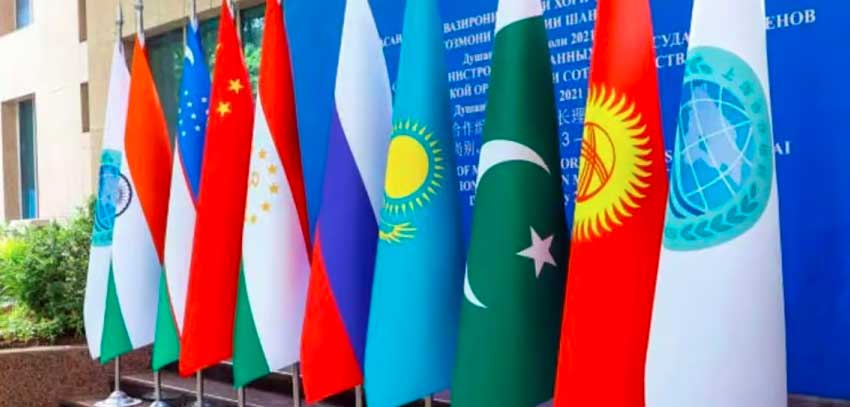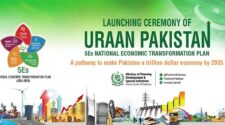Pakistan is all set to roll out the red carpet for the summit of Council of the Heads of Government of Shingai Cooperation Organization, (SCO) that is scheduled to hold from 15 to 16 October in Islamabad. No doubt, it is the highest ever multilateral event, after the 2nd OIC conference in 1974, which Pakistan, is going to host under its first ever chairmanship of the SCO. SCO is the successor of the “Shingai Five” that was established in 2001. The core  issues on which the SCO predominantly focuses include political, economic and security of Eurasia. Currently, the number of members of SCO has reached to ten after the latest entry of Belarus in the bloc in July, 2024. However, Pakistan and India joined the bloc in 2017. The bloc holds a vantage point in global affairs both in terms of geopolitical and geo-economic capabilities. In terms of political power, two out of 5 permanent members of the UNSC, three out nine countries who possess nuclear weapons, and three out 10 largest countries by area are the members of SCO. Moreover, three out 10 members are declared as strategic rivals of the US and its interests in their respective regions, which signify that an alliance may come to prevent western hegemony, likewise to BRICS, from the global affairs overtly very soon. In terms of economic power, the bloc accounts approximately 25% of the total world’s GDP and it also contains the two out of the top 5 highest economies of the world. Moreover, SCO members make 40% of the total world’s population in which 4 most populous countries out of top ten largest countries by population are its members this indicates a huge potential of markets in the bloc. Besides, two out of three largest military spenders and two out top five largest arms importers are its members, according to Stockholm International Peace Research Institute, (SIPRI).
issues on which the SCO predominantly focuses include political, economic and security of Eurasia. Currently, the number of members of SCO has reached to ten after the latest entry of Belarus in the bloc in July, 2024. However, Pakistan and India joined the bloc in 2017. The bloc holds a vantage point in global affairs both in terms of geopolitical and geo-economic capabilities. In terms of political power, two out of 5 permanent members of the UNSC, three out nine countries who possess nuclear weapons, and three out 10 largest countries by area are the members of SCO. Moreover, three out 10 members are declared as strategic rivals of the US and its interests in their respective regions, which signify that an alliance may come to prevent western hegemony, likewise to BRICS, from the global affairs overtly very soon. In terms of economic power, the bloc accounts approximately 25% of the total world’s GDP and it also contains the two out of the top 5 highest economies of the world. Moreover, SCO members make 40% of the total world’s population in which 4 most populous countries out of top ten largest countries by population are its members this indicates a huge potential of markets in the bloc. Besides, two out of three largest military spenders and two out top five largest arms importers are its members, according to Stockholm International Peace Research Institute, (SIPRI).
Pakistan stands at its one of the difficult phases of its history where it is grappling from economic turmoil, persisting energy crises, and low Foreign Direct Investment. Besides, the country is the 4th most hit country by terrorism, according to Global Terrorism Index report 2024. It is also experiencing diplomatic disinterestedness from the side of Washington since the fall of Kabul in 2021. Therefore, being a member and being a host, Islamabad can recuperate itself from such crises. For instance, the Regional Anti-Terrorist Structure (RATS), the SCO Counterterrorism Center, and the SCO Center against International Organized Crimes can assist Pakistan in ameliorating its security issues. It could also curb terrorism, separatism, and extremism, which the SCO calls as three evils, through intelligence sharing and joint counter-terrorism exercises with the support of respective bodies of SCO. Afghanistan, which was the issue of utmost importance not too long ago, hangs in balance. And Kabul’s observer status in SCO gives Islamabad an opportunity to foster bilateral relations with current regime in Kabul and it can also garner regional support and pressure against regime in Kabul which have remained reluctant to control Tahreek-i-Taliban Pakistan, (TTP). What is even more fortuitous is the presence of largest natural energy producing states in the bloc. For example, Russia currently stands at first when it comes to the countries having the largest number of natural energy reservoirs. Central Asian countries are also widely famed for their energy abundance, so improved relations with these countries, with the help of this multinational forum, could reduce Pakistan’s energy woes.
Including these, multilateralism is the best alternative source for a developing state that struggles to maintain its strategic autonomy. Hence, the forum of SCO is vital for Islamabad in offsetting western diplomatic pressure and to achieve autonomy in its external relations. Lastly, while India and Pakistan will not break the ice unfortunately, as indicated by Indian Foreign Minister. Nevertheless, these sorts of constant diplomatic engagements even at multilateral forums can pave way for the trust building between both nuclear armed adversaries, not now but may be in the future. The upcoming SCO meeting thus holds great significance for Pakistan, but it provides even greater benefits for being a host of this summit since it is stepping stone to expose soft image which Islamabad has shown little to the world than what has to be done.
Author of this op-ed is Jinsar Ali Jamro, Mphil Scholar of Defense and Strategic Studies at QAU, Islamabad. He writes on national and international affairs. He can be reached at jamrojinsar102@gmail.com










